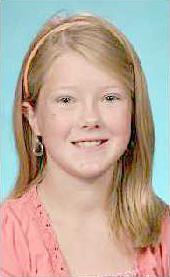2011 Scripps National Spelling Bee by the numbers:
• 275 spellers – 138 boys and 137 girls
• One third grader
• Six fourth graders
• 25 fifth graders
• 27 sixth graders
• 88 seventh graders
• 117 eighth graders
• 179 attend public schools
• 42 attend private schools
• 27 are home schooled
• 16 attend parochial schools
• 10 attend charter schools
• 53 are only children
• Six are fraternal twins
• One is an identical twin
• 24 spellers have at least one relative who has competed in previous national finals
• There are three four-year repeaters
• 17 three-year repeaters
• 51 two-year repeaters (including Iola seventh grader Clara Wicoff, who advanced to the national bee in 2009 after winning the Sunflower contest at Great Bend.)
• 24 spellers have at least one relative who has competed in previous national finals
• Kansas spellers include: Wicoff,
• Kansas spellers include: Wicoff, representing Allen County; Swetha Jasti (Olathe, seventh grader, Chism Trail Middle School, first time at nationals, Olathe News sponsor); and Cara Knapp (Seneca, seventh grader, home schooled, first time at nationals, Topeka Capital Journal sponsor)
More information on the bee can be found at www.spellingbee.com.
NATIONAL HARBOR, Md. – Clara Wicoff, the Iola seventh grader who spelled her way to her second Sunflower Spelling Bee victory in March, barely missed making it to the nationally televised semifinals of the Scripps National Spelling Bee today in Washington, D.C.
In the first three rounds of the national bee Tuesday and Wednesday, Wicoff, representing Allen County, spelled misogynist correctly in the second round and alchemy correctly in the third. However, these combined with her score on the round one written test failed to qualify her as one of 50 competing in today’s spelling action.
Wicoff qualified for the big show by winning the Great Bend Tribune’s Sunflower Spelling Bee in March at Barton Community College. She also won the Great Bend bee in 2009 as a fifth grader, but didn’t survive the preliminary rounds at nationals.
The national bee opened Tuesday morning at the Gaylord National Resort and Convention Center in the Washington suburb of National Harbor, Md., when all 275 spellers took the written 25-word round one test.
In this, words were recited, followed by any alternate pronunciations, parts of speech, origins, definitions and usage in sentences. The pronouncer repeated a word and information, paused for 30 seconds, then moved to the next. After the words had been given, he repeated the words only.
Each word was worth one point and all 25 spellings counted toward each speller’s preliminaries score.
On Wednesday, all participants took part in rounds two and three on stage. For each correct spelling in these rounds, spellers earned three points that counted toward their preliminaries scores. It is possible for a speller to earn up to 31 points in the preliminaries: 25 points on the round one test plus three points each for a correct spelling in round two and three.
It took 29 points to make it to the finals and Wicoff earned 28. This would have been enough to have qualified her in her last run and the championship.
These rounds were broadcast on ESPN3.
Immediately after round three, bee officials determined semifinalists, based on total scores in the earlier rounds. No more than 50 spellers qualified for the semifinals.
Today, the semifinalists will compete on stage between 9 a.m. and noon CST. In general, a speller is out of the competition once he misspells. This will be broadcast live on ESPN.
Championship finalists compete on stage beginning at 7:30 p.m. CST tonight. These, too, will be aired on ESPN.
Sponsored by the E.W. Scripps Company, the national bee dates back to 1925.
The Tribune picked up the nationally qualifying event for the first time in 2008 after the Topeka Capital Journal, which had long held what was considered the state championship bee, declined to host 76 of the counties it had previously served. This is how the Sunflower Spelling Bee was born.





